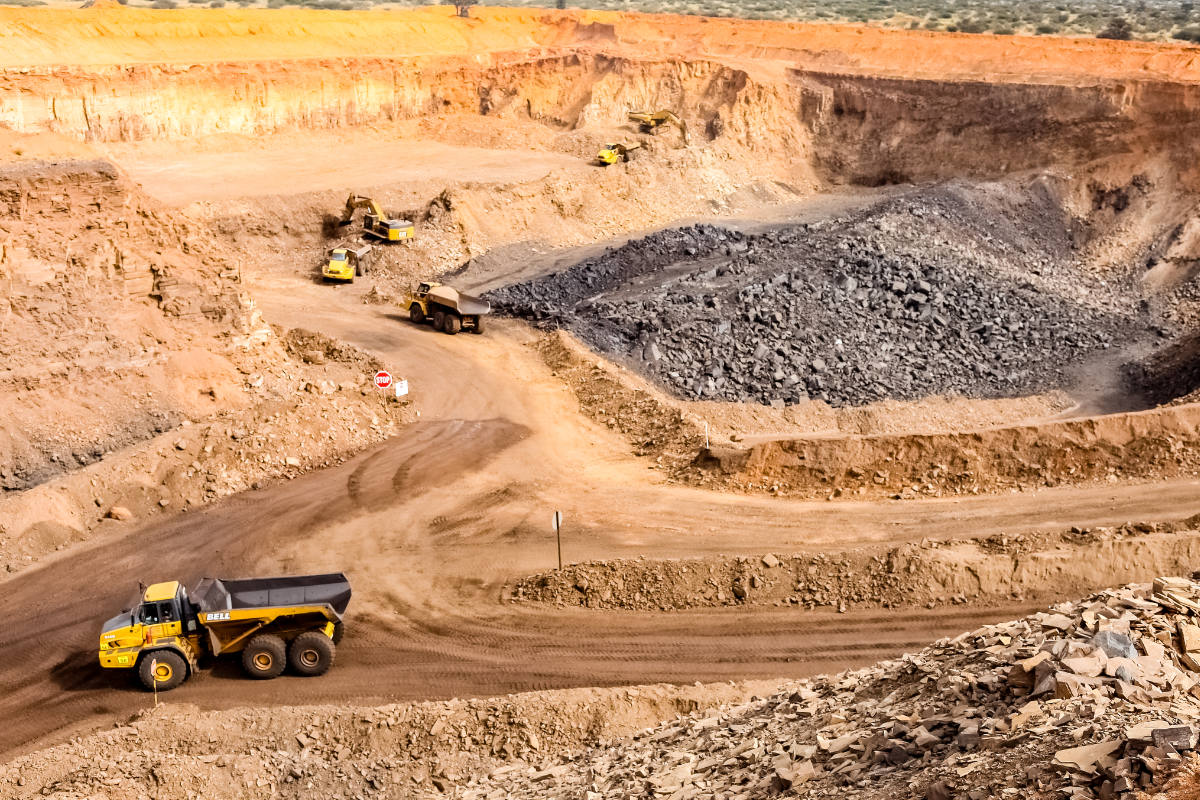Ghana’s abundant natural resources made the country standout especially regarding the gold mining industry.
Today, Ghana is Africa’s second largest gold producer after South Africa.
It has consistently maintained its ranking as a top ten global gold producer in the world for many years now.
The mining sector is of great importance to the Ghanaian economy and attracts more than half of all foreign direct investment (FDI), generating more than one-third of all export revenues.
Mining is the largest tax-paying sector in the country and makes a significant contribution to gross domestic product (GDP) and employment creation.
Current mining sector policies have greatly increased foreign investor interest resulting in a massive foreign direct investment of over U$2 billion into the mining sector over the last decade. The mining sector is now the leading foreign exchange earner.
Gold, the most important mineral, earns over U$600 million and making up almost 90% of the mineral output. The sector is now largely foreign owned, but the Government of Ghana still holds a minority (10 per cent) free carried interest in most of the main active large-scale mines. The small-scale mining industry is reserved for Ghanaians.
Ghana has over 20 large-scale mining companies producing gold, diamonds, bauxite, and manganese; over 300 registered small scale mining groups. Some of the largest gold mining companies in the world are sited in Ghana. Companies as Newmont, Gold Fields, Kinross Gold, and AngloGold are one of the largest employers of labour in the country.
Although Ghana is prominently known for gold, it also produces diamond as well as bauxite, and Ghana is expected to have this year 2024, its first lithium mine. It is ranked fourth in Africa in terms of lithium reserves, with an estimated 180,000 tonnes.
In addition to gold, the boom of manganese and plans to extract aluminium and bauxite at larger quantities allows for Ghana to diversify its mineral portfolio which can only provide considerable levels of new investment, both domestic and foreign.
The Ghana Integrated Aluminium Corporation has indicated that government is inviting investors to submit plans on potential expansions of the bauxite production from 1.4 million metric tons to a potential 5 million tons per annum.
The improvement in the ease of doing business in Ghana is a great incentive for foreign direct investment in the sector. Ghana regularized small-scale gold mining operations in the country, it was estimated that about 60,000 to 80,000 ounces of gold hitherto produced by Small Scale miners were smuggled out of the country annually.
The outlook of the Ghana Mining industry is very promising as it has ever been with potential and projections to grow even more than it has done so far. Gold production in Ghana will experience significant growth in the years ahead, driven by the restoration of mines, the introduction of new gold mining projects and the integration of artisanal miners into Ghana’s gold output.
Ghana has a relatively stable political climate compared to some other African countries. This stability encourages investment and allows mining companies to operate with confidence. Advances in mining technology have made it easier to extract gold efficiently.
Modern equipment, better processing methods, and improved safety practices contribute to increased production. Mining companies in Ghana have adopted modern practices, leading to higher yields and better resource management.

